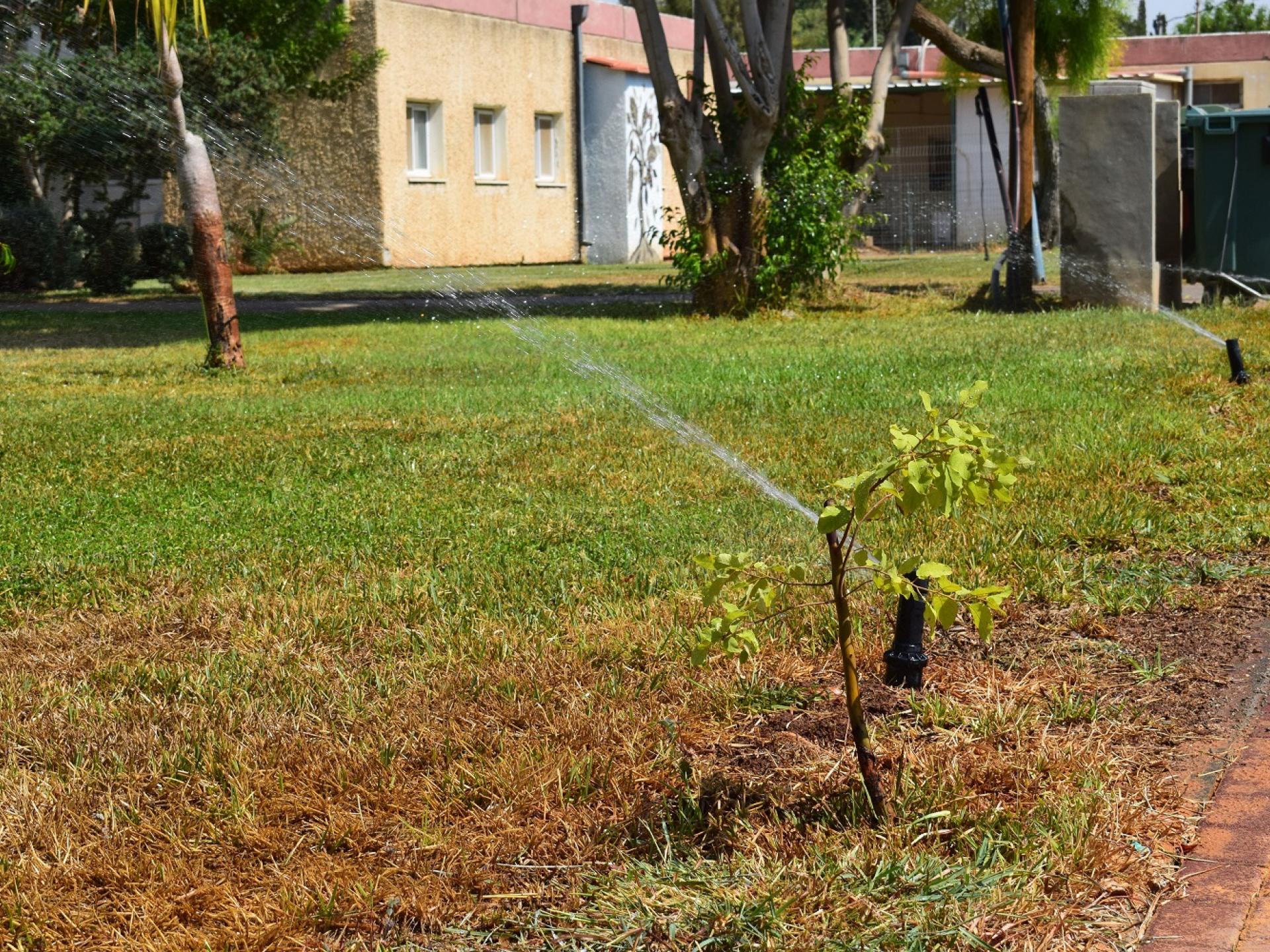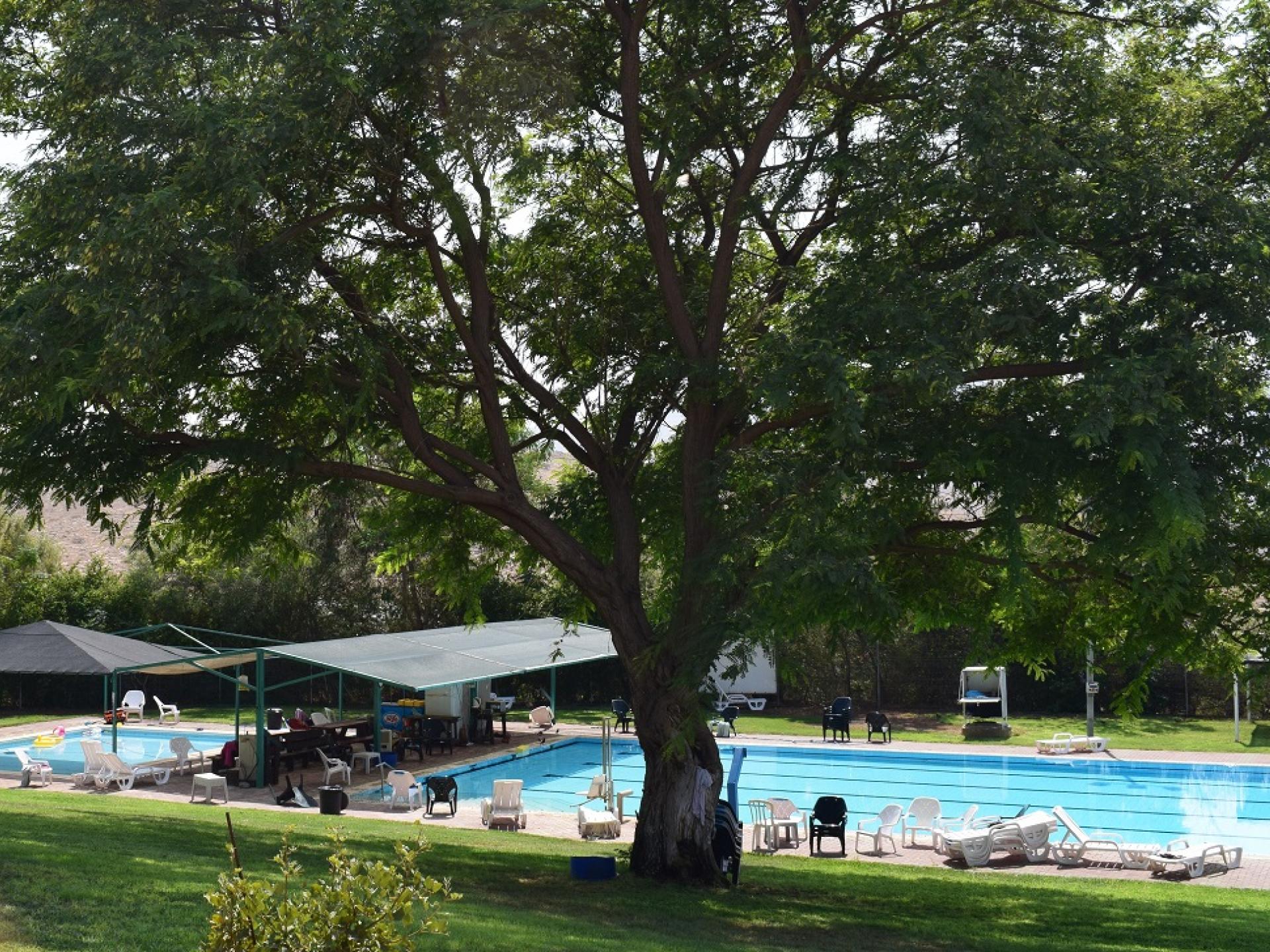Palestinian Jordan Valley: A visit in hell
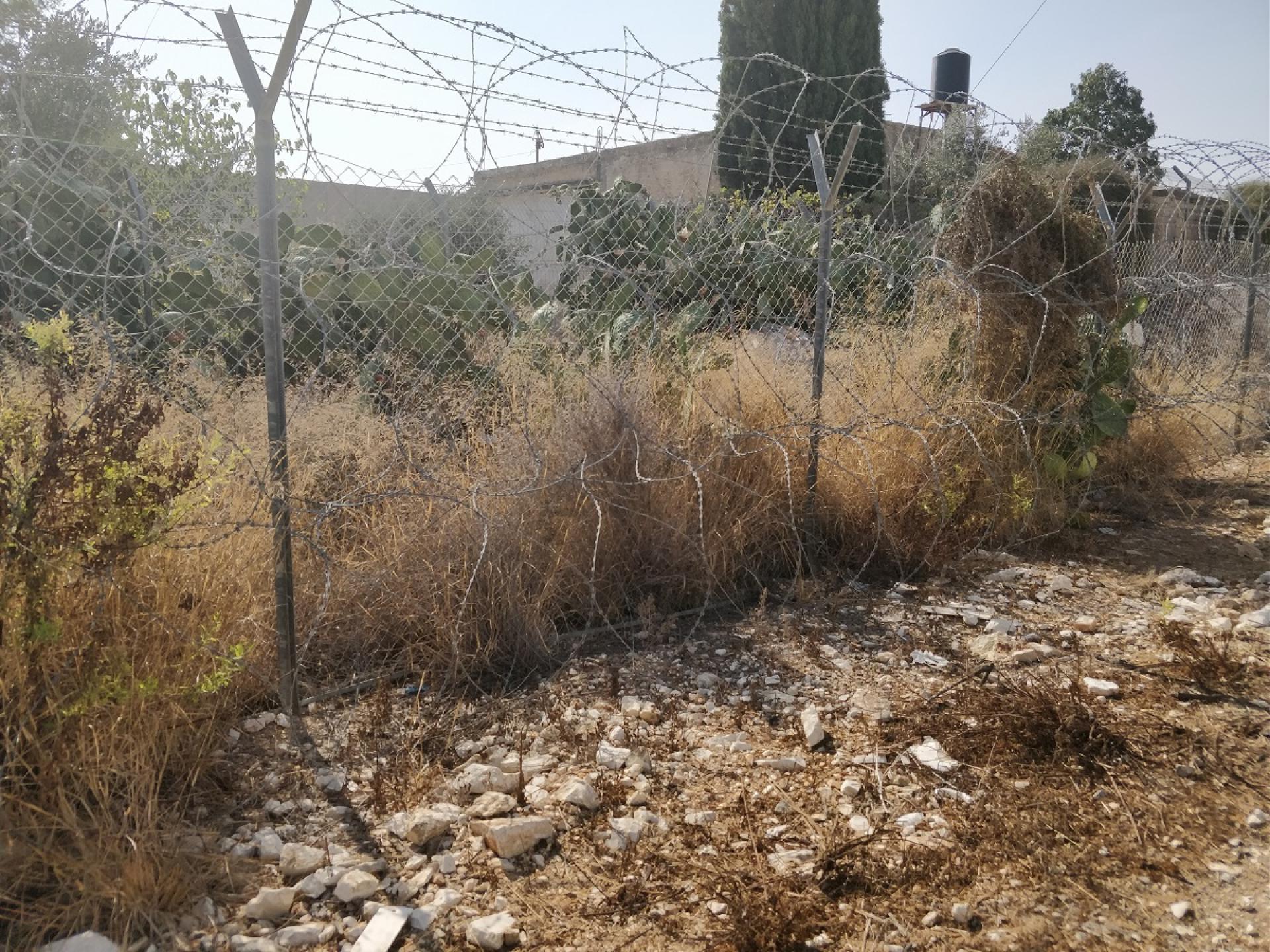
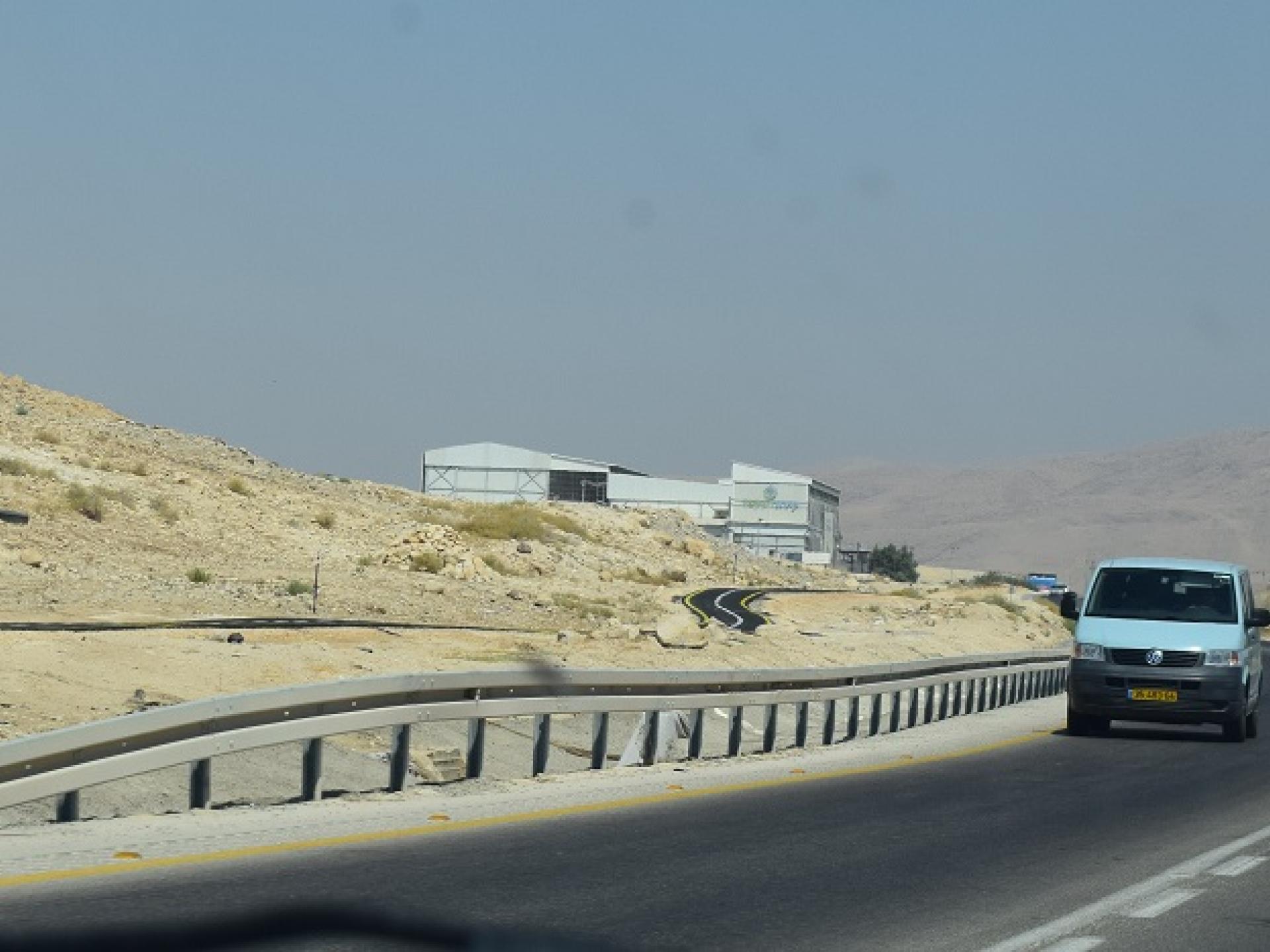
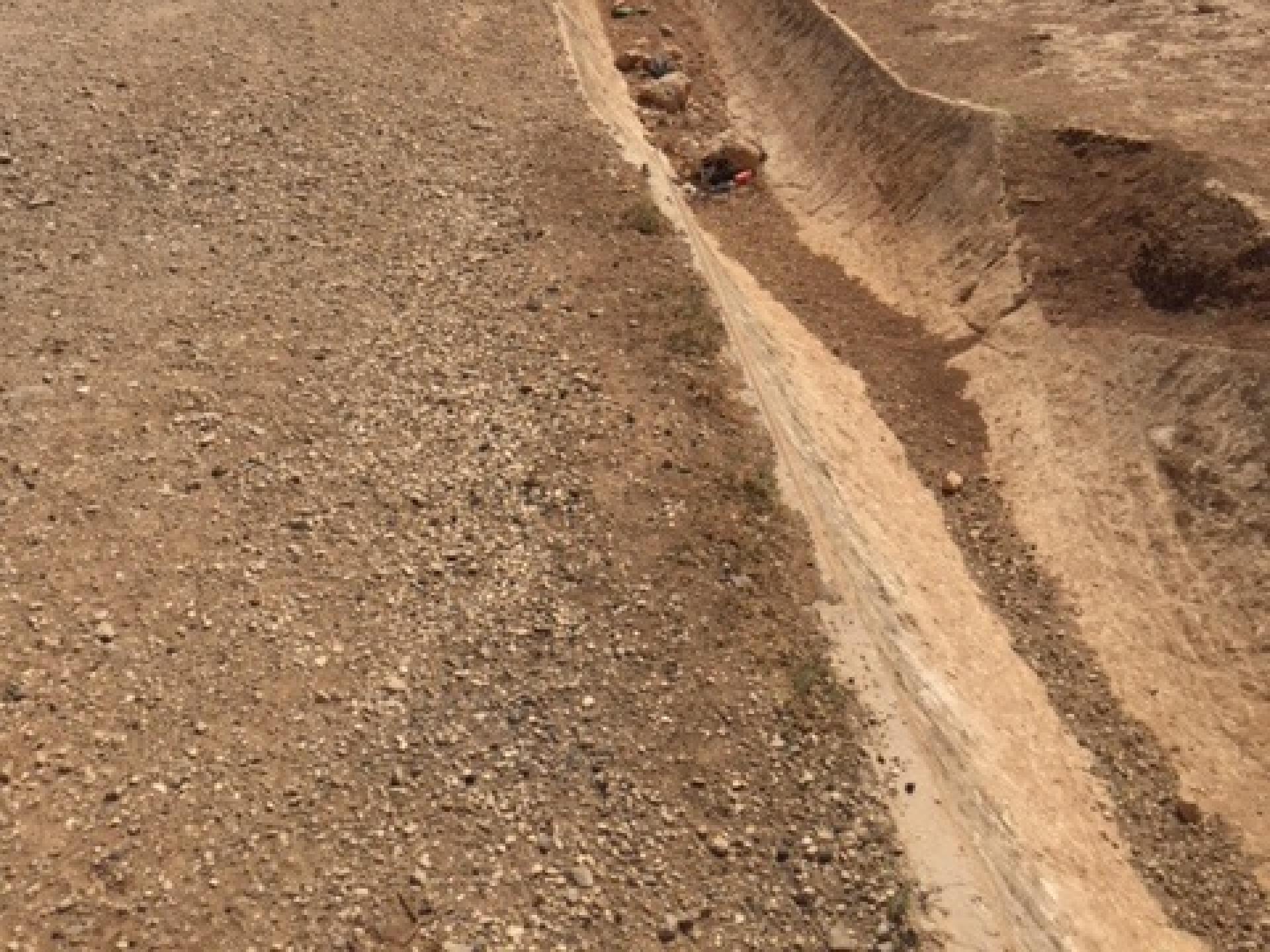
Today we were joined for our visit by two guests – highly interesting and attentive women. They are active in their own country helping Mexicans who cross the border to the US and are involved in studying America’s indigenous population. It was a pleasure to have them.
We began with the caged-in house at the outskirts of Palestinian village Mas’ha, the village’s last house which a high Israeli-built concrete wall now separates from the village itself. Our guests were justifiably shocked at the sight of this house completely surrounded by barbed wire fences and wall, all in order for the settler-colonists of Elkana not to have to suffer the sight of the wall right in their faces, hiding the view. Within 10 minutes the settler-colony’s security official arrived and wanted to know what we were doing there. He said we mustn’t be there (naturally – who would want his shameful parts to be photographed?) As we were already on our way out, we left.
In the Palestinian Jordan Valley we went to see the dried-out spring and ditches of Al Aujja. In the Palestinian village of Bardala we met the DCO official who told us that the local residents’ water allotment (only theirs!) has been reduced from 240 cubic meters, the amount agreed upon between Israel and the village elder, for 40 (!) years. Next to the village’s ruined water pump we met a farmer who complained that drinking water is available only every two days. I told him that the settler-colonists accuse the Palestinians of stealing water (Bardala’s water), and he replied: “So? Should we just die?”
En route, on the eastern side of road 90, we saw paved, well-marked two-lane bicycle track. A fortune has been invested here. And for what? I have never seen a single cyclist in the Palestinian Jordan Valley. My feeling is that the track is meant for tourist campaigns of cyclists and their races along the Jordan Valley road - yet another way to legitimize unharnessed land-grab from the Palestinians.
We had tea in the shade of a huge ficus tree, the owner-family of which has suffered its 450 olive trees cut down by the Israeli army in May. The stumps are still there.
We went up the hill to the unlawful, pirate outpost of Al Hemma, to which a convenient track for vehicles has recently been laid.
Two years ago Abu Saker of Al Hadidiya, together with Israeli activists, tried to pour some kurkar (sandstone pebbles) along the reddish earthen track leading to his home, since all winter long his encampment is totally isolated because the red earth turns into swamp-like mud. All he wished was for his children to reach their school transport. Within a few days the Civil Administration bulldozers came and not only demolished the track but also raised tall dirt piles that totally blocked the way. What is that word describing separate sets of laws based on ethnicity?...
bulldozers came and not only demolished the track but also raised tall dirt piles that totally blocked the way. What is that word describing separate sets of laws based on ethnicity?...
During the days that the Al Hemma settler-colonist outpost was put up, the army demolished the Al Hemma Palestinian encampment directly below, twice. Lately acts of serious violence by the Al Hemma settler-colonists against the Palestinian shepherds have escalated. They prevent them from grazing their flocks, and this is all fully backed by the Israeli army and police.
On the way our guests heard explanations about disconnecting the hills of the West bank from the Palestinian Jordan Valley, and while we were talking we saw two fathers with their two toddler sons walking from the West Bank east in the mid-day scorching heat, from their village to their flocks’ grazing ground down below. Why on foot? Because all tracks for vehicles from the West Bank to the Jordan Valley are now blocked.
We entered Beqa’ot settler-colony to rest our eyes with the lush greenery of the place: the Olympic-size swimming pool, green lawns and water sprinklers watering everything during the hottest hours, against the background of the Palestinians’ arid, barren lands. Tomorrow the settler-colonists will complain that the Palestinians steal their water, after they themselves have stolen all the Jordan Valley water from the Palestinians.
We had lunch with the Zob’a family in Homsa, above the Hamra Checkpoint. Zob’a, his wife and two spinster daughters live in a single-room house built with mud before 1967. The place is cracked and dilapidated and they have no money to renovate it. Seven of his eight sons have left home because they have nowhere to live. With the years, every living structure, small as it may be, has been demolished time and again. Since 1967 no construction permits are issued here, so every single attempt to build anything is illegal and fated for demolition by the army. In 2015 Mahmoud, the only son who remained on their land, received a caravan from the European Union, to have a roof overhead for himself, his wife and their three little daughters. In 2017 the army notified him that it would come within a week to demolish the caravan. Fearing his sheep-pen and olive trees would be ruined as well, Mahmoud dismantled his caravan himself, and stored its parts. On August 8 this year he rebuilt it, but not a whole month went by and on September 3 the army confiscated the caravan without warning, without letting him have the slightest chance to wage a legal battle over his right to a dwelling. So they have all gone back to living in a tent. To add insult to injury – one of the officers photographed the tent from all directions and promised to come back again soon and demolish it too.
